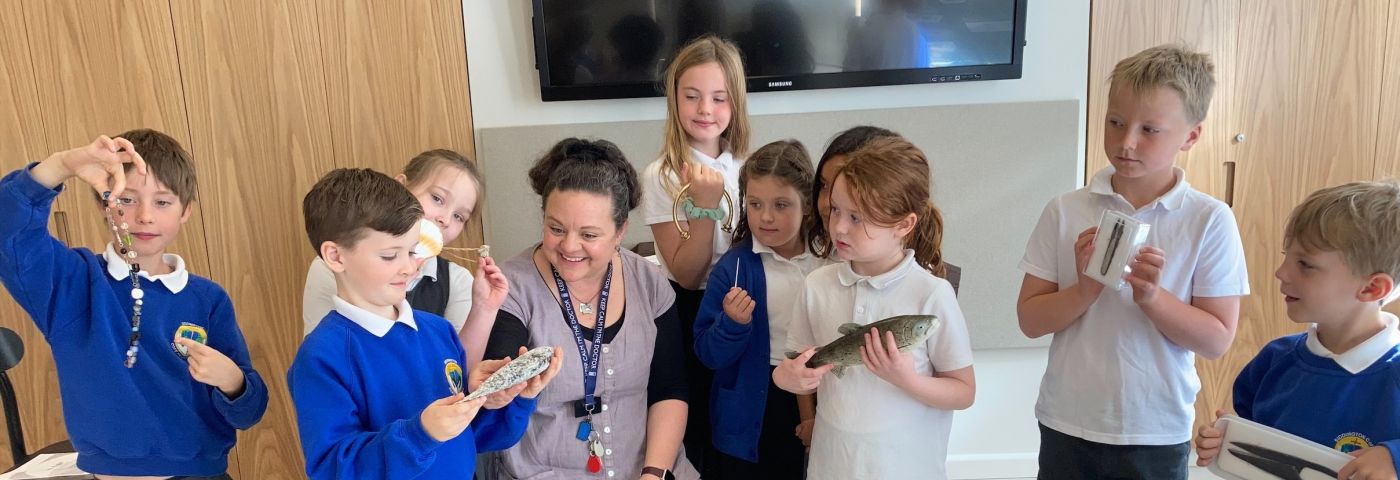The Oxford English Dictionary defines a museum a “building in which objects of historical, scientific, artistic or cultural interest are stored and exhibited”. That is what a museum is, and the definition covers a little of what it does, but what is its purpose?
The primary function of a museum is to educate. Our collections can help us to share knowledge of the past with the public and further add to the knowledge base through research that can offer new insights, information and perspectives.
May 18th is International Museum Day and the theme is Museums for Education and Research. At the Corinium Museum, education is front and centre of everything we do. Our displays help visitors to not only learn about but also to physically connect to the past through hands-on activities and interactive elements. We have lectures, exhibitions, talks, walks and workshops for adults.
We offer workshops for schools and gallery guides that tie in to National Curriculum objectives. These help us to enlighten and enthuse pupils about the past in ways that might not be possible in a traditional classroom environment. But we also have loans boxes that go out to schools to help with classroom learning. We run children’s trails around the museums, holiday workshops and drop-in activities.
The way we, as a society, view moments and movements of the past is not constant, but ever-evolving. Technology has allowed us to gain insight into areas previously thought to be inaccessible. Changes in society mean that we view the past differently, with attempts to remove historical social biases. Researchers are key to this and many use our collections to further knowledge and change perceptions. For example, in 2023 Masters student Susanna Venn undertook a reanalysis of skeletons from the Roman Bathgate Cemetery. These had been examined in the 1970s, but new techniques have enabled her to make some new discoveries and draw new conclusions.
The final group that receives an education at the museum is its staff. Our work involves not only knowledge of our collection but also new finds and periods of history or types of artefact that we, as individuals, might not have expertise in. It is not unusual to see members of the Collections Team with books and documents strewn across the desk and numerous web browser open on their screen, in a bid to find out more about a small piece of pottery, a metal object or a find site or location. To share the past with the public, in lectures, workshops and tours, we need to make sure we are familiar with it, both in a general sense and also very specifically in terms of Cirencester’s past. We need to understand the tangible history and the more intangible cultural heritage. We are always learning.
The Corinium Museum today is very different to 100 years ago or even 30 years ago. Technology has allowed us to change the way we display and interpret our collections, and it has helped us to connect to people who may not have found it easy or enjoyable to access them in more traditional ways. But our mission has always been the same: to share our finds and knowledge. To slightly adapt the Malcom X quote, we educate people about the past, so they can understand the present and prepare for the the future.










